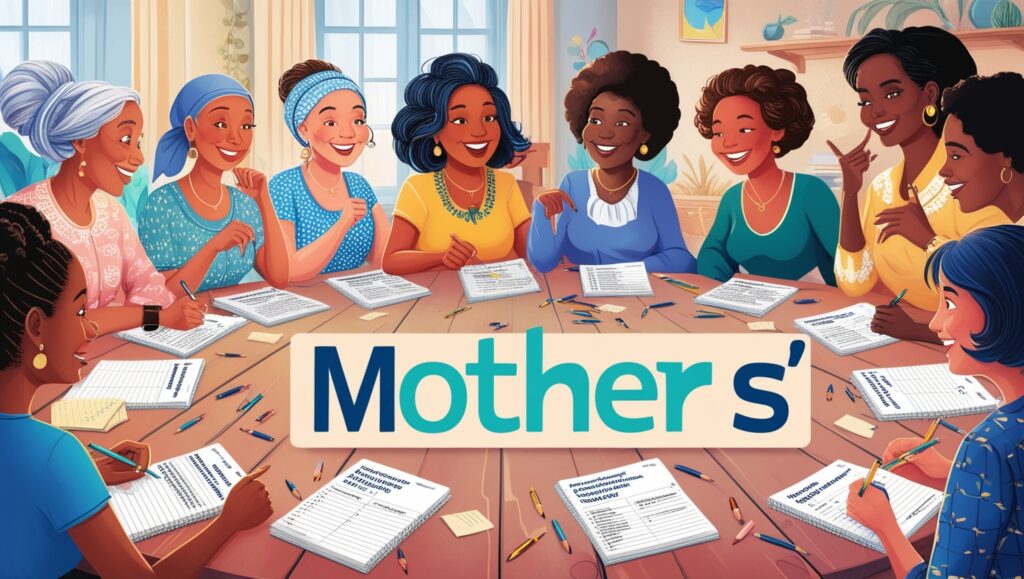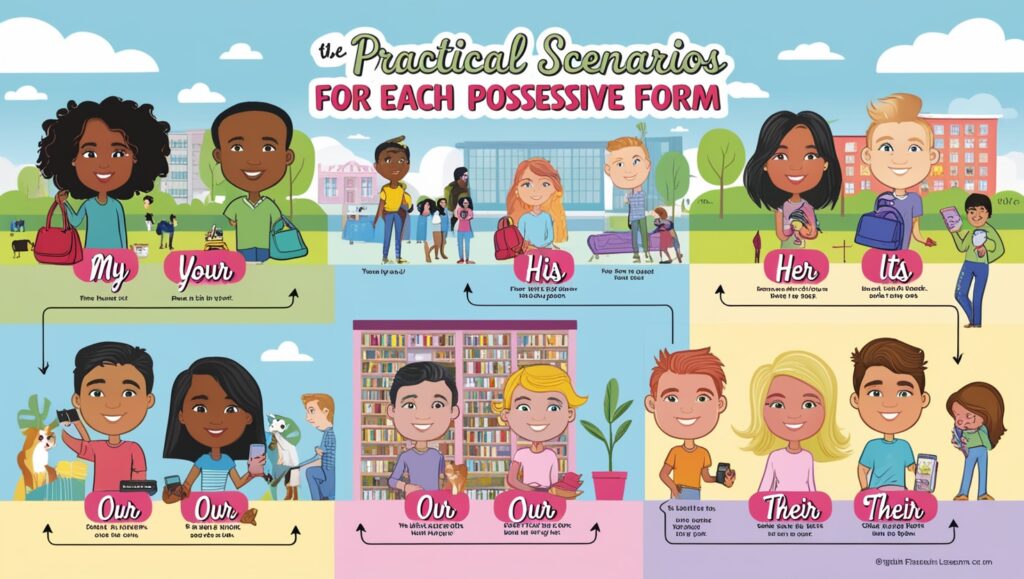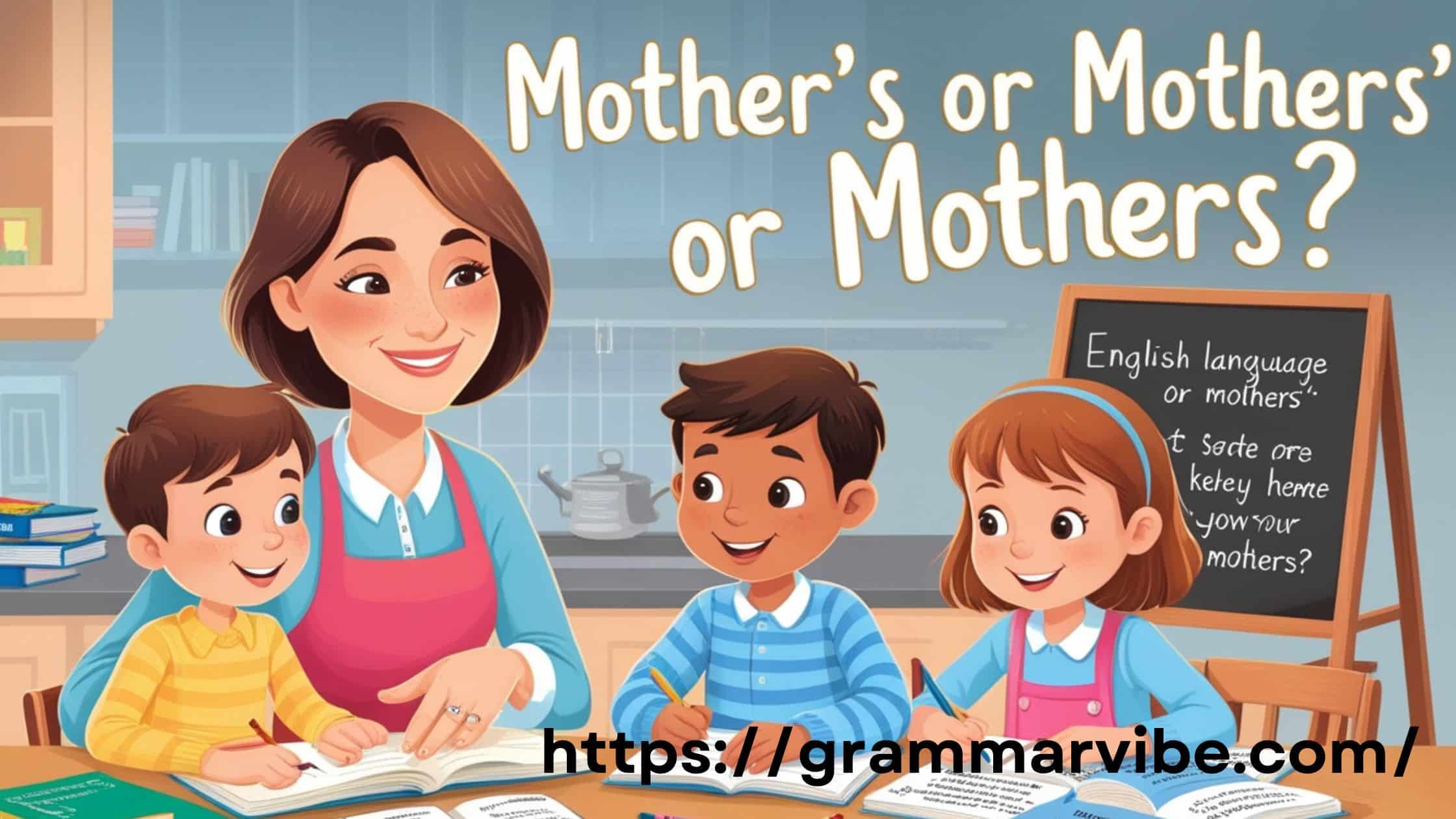The words mother, mother’s, and mothers’ may seem straightforward at first glance, but their meanings and uses vary depending on whether you’re talking about one mother or many, and whether you’re indicating ownership. Understanding how to use these terms correctly is essential for clear and precise communication, especially when writing about personal experiences, family matters, or community activities.
In this article, we will break down the differences between the singular and plural forms of mother, explore how to use the singular possessive and plural possessive, and provide examples that illustrate each form. We will also look at situations where these forms come up in real life, from a parenting workshop to a mothers’ association.
What is the Plural of Mother?
The plural of mother is mothers. This form is used when referring to more than one mother, but not indicating possession or ownership. For example:
- Mothers often share their parenting experiences with one another.
- At the parenting workshop, several mothers discussed strategies for work-life balance.
In these examples, mothers is simply the plural form of mother, and it’s used to refer to multiple mothers without suggesting that something belongs to them.
Examples of Mothers in Sentences
Here are some additional examples of the plural form of mother in action:
- The mothers met at the park for a playdate.
- A group of mothers volunteered at the school fundraiser.
- Mothers from the neighborhood gathered for a support group meeting.
In each case, the word mothers refers to more than one individual, but nothing is owned by them.
Understanding the Singular Possessive Form: Mother’s
The singular possessive form of mother is mother’s. This form is used when something belongs to one mother. It could refer to an actual physical part of a mother or something related to her character. For example:
- The mother’s love for her child was evident in everything she did.
- Our mother’s wisdom guided us through many challenges.
In these examples, the word mother’s shows possession. In the first sentence, love belongs to one mother, and in the second, wisdom belongs to one mother.
Examples of Mother’s in Sentences
Here are more examples where mother’s is used to indicate something that belongs to one mother:
- The mother’s hands were gentle as she cared for the baby.
- My mother’s advice has always been invaluable.
- Mother’s recipe is a family favorite.
As you can see, in each case, something specific—whether it’s hands, advice, or a recipe—belongs to one mother.
More for you: Other Ways to Say “I Hope Life Is Treating You Well”
Exploring the Plural Possessive Form: Mothers’

The plural possessive form of mother is mothers’. This form is used when something belongs to multiple mothers. It indicates shared ownership, often over physical objects, results, or opinions. For example:
- The mothers’ association organized a community event.
- The mothers’ contributions to the school project were acknowledged by the principal.
In the first example, the association belongs to several mothers, and in the second, the contributions are from a group of mothers.
Examples of Mothers’ in Sentences
Here are some additional examples that use mothers’ to show ownership by multiple mothers:
- The mothers’ recipe books were filled with cherished family meals.
- The mothers’ section of the hospital provides specialized care for new mothers.
- The group of women planned a mothers’ getaway to the beach for some well-deserved relaxation.
These examples demonstrate how mothers’ indicates that multiple mothers share ownership of items, spaces, or events.
Differences Between Singular and Plural Possessives
The key difference between mother’s and mothers’ is whether you’re talking about one mother or multiple mothers. When you use mother’s, you’re talking about something that belongs to one mother. When you use mothers’, you’re talking about something that belongs to more than one mother.
Singular Possessive Example: Mother’s
- The mother’s wisdom was evident in her thoughtful parenting.
This sentence refers to the wisdom of one mother.
Plural Possessive Example: Mothers’
- The mothers’ experiences helped the group to bond during the support meeting.
In this case, the experiences are shared among multiple mothers.
Check out this: Other Ways to Say “Please See Below”
Practical Scenarios for Each Possessive Form

Let’s take a closer look at real-life scenarios to better understand when and how to use each possessive form.
1. Mother’s – Singular Possessive Example in a Parenting Setting
Imagine a family discussing how their mother helped them through difficult times. You might say:
- Our mother’s wisdom helped us navigate the challenges of growing up.
In this case, the wisdom belongs to one mother, and the singular possessive mother’s is used to indicate this.
2. Mothers’ – Plural Possessive Example in a Support Group Setting
Now, picture a group of mothers who meet regularly for mutual support. You might hear:
- The mothers’ association organized a weekend retreat for relaxation.
Here, the association belongs to multiple mothers, so the plural possessive mothers’ is used.
3. Mothers – Standard Plural Example in a Social Setting
When you’re talking about a group of mothers, but not something they own, you would use mothers:
- The mothers gathered for a community picnic to share their parenting experiences.
In this sentence, there’s no possession. It’s simply referring to a group of mothers.
For your interest: Other Ways to Say “Very Much Appreciated”
Table of Possessive Forms of Mother
| Form | Example Sentence |
|---|---|
| Singular (Mother) | “The mother arrived early to pick up her child.” |
| Plural (Mothers) | “The mothers gathered for a parenting workshop.” |
| Singular Possessive (Mother’s) | “The mother’s hands were gentle as she cradled her baby.” |
| Plural Possessive (Mothers’) | “The mothers’ association organized a community event.” |
Additional Context: Spaces for Mothers and Time Without Fathers
Sometimes, the plural possessive mothers’ is used to refer to places or periods specifically designed for or owned by multiple mothers. For example:
- The mothers’ section at the hospital provides a comfortable space for new mothers.
- They planned a mothers’ getaway to the mountains for some relaxation and bonding.
In these cases, the mothers’ section and mothers’ getaway are spaces or events meant for multiple mothers, often involving time away from fathers or other responsibilities.
You might also like: Alternative Ways to Say “Enjoy Your Time Off”
Common Mistakes and How to Avoid Them
One of the most common mistakes is using mother’s when you mean mothers’ (or vice versa). The key is to remember whether you’re talking about one mother or many, and whether you’re indicating possession. Here’s a quick guide to avoid confusion:
- Use mother’s when something belongs to one mother.
- Use mothers’ when something belongs to multiple mothers.
- Use mothers when you’re talking about multiple mothers without indicating possession.

Kyren Paul is an experienced blogger and the creative mind behind “Grammar Vibe.” With a passion for the nuances of English grammar, he brings clarity and insight to everyday language topics, making grammar accessible and engaging for readers of all levels.











Leave a Comment